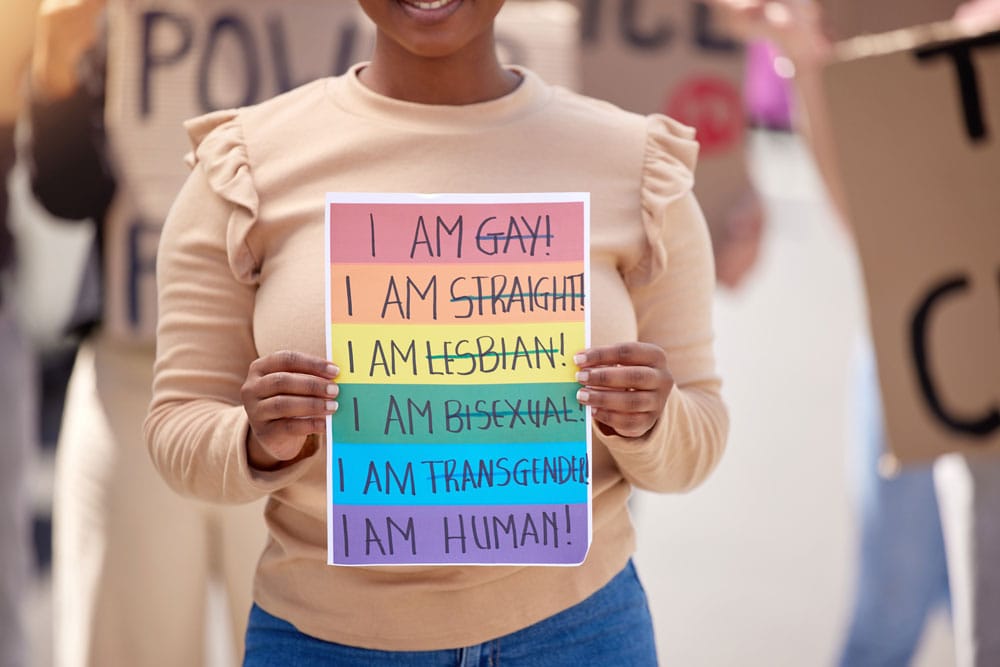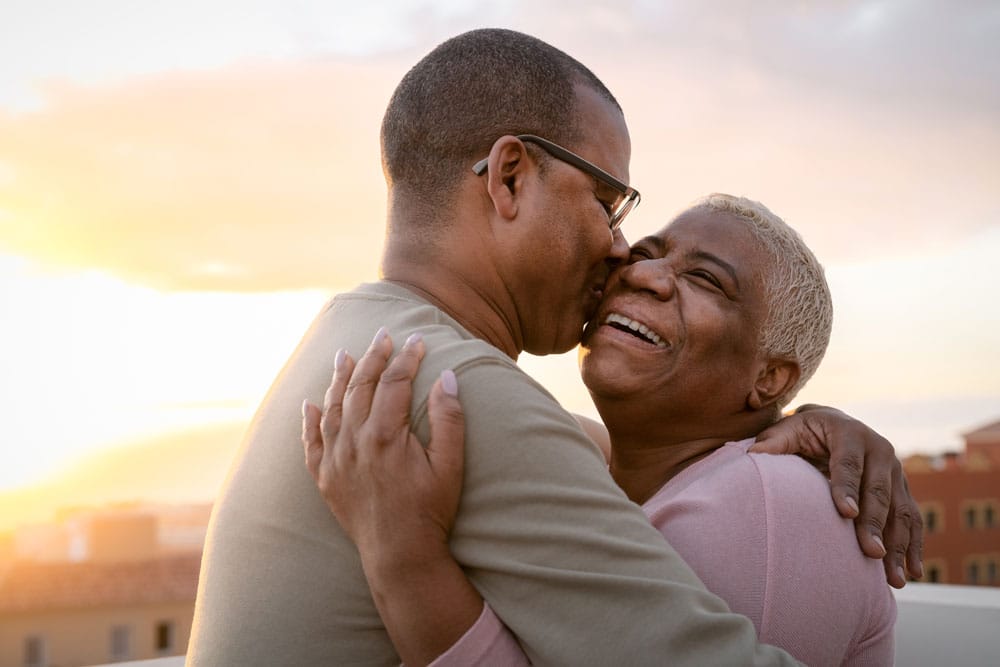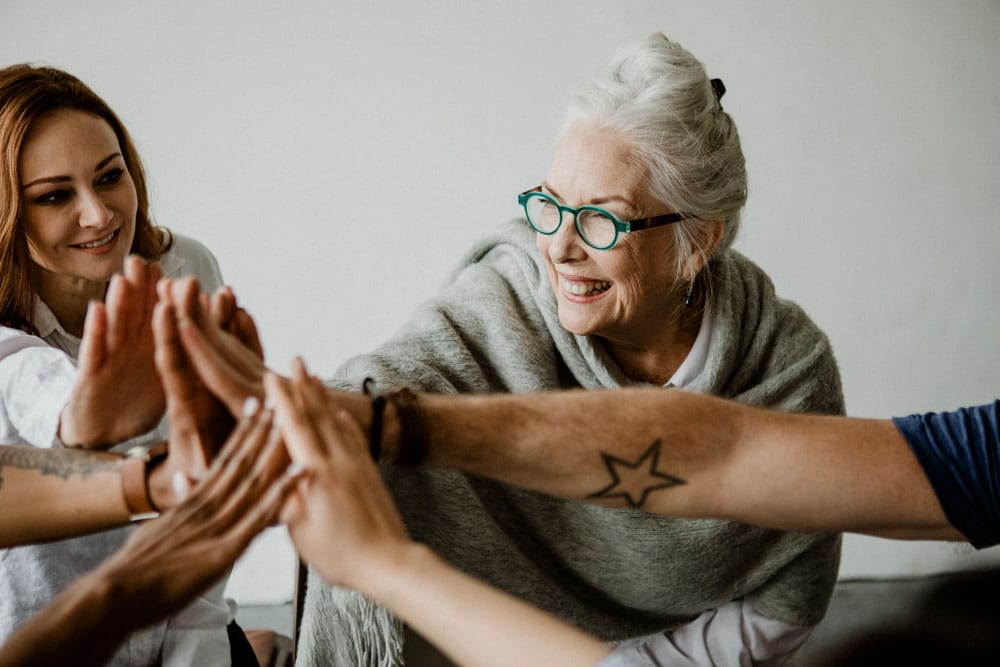Exploring Therapeutic Options: Sex Therapy and Counselling
Sexual health is not solely about physical function; it is deeply intertwined with emotions, psychology, and relationship dynamics. While medical treatments address physiological concerns, therapy and counselling offer valuable support for navigating emotional barriers, communication challenges, and shifting intimacy needs.
Seeking professional guidance for sexual wellness is not about “fixing” something broken; it is about enhancing connection, understanding desires, and addressing concerns with confidence.
For individuals struggling with intimacy-related stress or couples facing challenges in their intimate lives, sex therapy and counselling provide structured pathways to deeper emotional and physical fulfilment. These therapeutic options create safe spaces to process experiences, overcome inhibitions, and rediscover pleasure at any stage of life.
What Is Sex Therapy?
Sex therapy is a specialized form of counselling designed to help individuals and couples navigate concerns related to sexual health, emotional intimacy, and relationship dynamics. Unlike medical treatments that focus on physical function, sex therapy addresses psychological barriers, communication challenges, and relationship expectations that may impact intimacy.
This form of therapy does not involve physical examinations or explicit discussions of private experiences. Instead, it provides tools and techniques for improving intimacy through conversation, exercises, and behavioural strategies.
Common Reasons People Seek Sex Therapy
Sex therapy is beneficial for a wide range of concerns, offering tailored solutions based on individual experiences. Some common reasons include
Low libido or fluctuating desire
Therapy helps individuals understand the emotional and physiological factors affecting their sexual interest and provides strategies for restoring confidence.
Performance anxiety or difficulties with arousal
Stress, negative self-talk, or past experiences can create mental barriers that affect sexual function. Therapy helps manage expectations, reduce anxiety, and foster self-acceptance.
Relationship struggles affecting intimacy
Emotional disconnect, unresolved conflicts, or unspoken frustrations can lead to distance in physical closeness. Therapy helps partners explore underlying issues and rebuild trust.
Body image concerns impacting intimacy
A negative perception of one’s appearance can reduce sexual confidence. Therapy provides tools for self-compassion, self-acceptance, and emotional reassurance.
Navigating intimacy after life changes
Illness, disability, grief, or new relationship dynamics may require adjustments in physical intimacy. Therapy supports individuals and couples in adapting to new circumstances while maintaining connection.
Sex therapy is not about assigning blame or forcing change; it is about understanding experiences, processing emotions, and fostering intimacy with openness.
How Couples Benefit from Sex Therapy
Sexual challenges in relationships are common but often left unspoken. Partners may avoid discussing shifts in desire, struggles with intimacy, or emotional disconnect due to discomfort, fear of rejection, or past misunderstandings. Therapy provides a structured space to express concerns without judgment, improving communication and fostering connection.
Some benefits for couples include:
- Breaking down unspoken frustrations that may be causing tension.
- Identifying shared and individual needs in intimacy.
- Learning techniques for enhancing physical and emotional closeness.
- Exploring different ways to experience pleasure beyond traditional expectations.
- Building confidence in expressing desires and concerns.
Sex therapy is not about forcing compatibility; it is about helping couples understand each other deeply and develop intimate strategies that support their relationship.
Counselling for Emotional and Psychological Intimacy Challenges

While sex therapy focuses on specific concerns related to intimacy, general counselling plays an essential role in supporting individuals dealing with stress, anxiety, or relationship struggles that indirectly affect sexual wellness.
Emotional well-being directly impacts desire, connection, and confidence in intimate relationships. Addressing psychological challenges through therapy can help individuals strengthen both their personal and romantic experiences.
For those experiencing anxiety and intimacy struggles, therapy teaches relaxation techniques that ease mental barriers to physical connection. Stress and worry can create psychological roadblocks that make intimacy feel overwhelming.
Learning to manage anxiety through mindfulness, breathing exercises, and communication helps individuals reconnect with their partners and feel more present in their relationships.
Similarly, depression can affect libido, leading to decreased desire and difficulty engaging in intimacy. Emotional exhaustion often makes closeness feel like an effort rather than an enjoyable experience.
Therapy helps individuals restore motivation, strengthen emotional connection, and improve self-perception, allowing them to experience intimacy in a more natural and fulfilling way.
For those healing from past trauma, guided counselling provides a structured space to process difficult experiences that may be blocking intimacy or comfort. Emotional wounds, whether from past relationships, personal insecurities, or life experiences, can linger and affect confidence in closeness.
Therapy offers tools for coping, rebuilding trust, and fostering a sense of safety in intimacy, helping individuals regain control over their emotional and physical wellness.
Seeking therapeutic support is a valuable step toward strengthening emotional well-being and nurturing healthier relationships, both with oneself and with partners. Understanding the link between mental health and intimacy allows individuals to take proactive steps toward improving their overall satisfaction in relationships.
Taking the First Step: Seeking Professional Guidance
Deciding to seek therapy can feel intimidating, but it is a powerful act of self-care. Many people hesitate to reach out for support due to stigma or uncertainty about what to expect. However, professional guidance provides essential insights and strategies for navigating emotional and sexual wellness with confidence.
Finding a qualified sex therapist or counsellor who specializes in sexual health and relationship dynamics ensures that individuals receive expert advice tailored to their concerns. Some therapists focus specifically on intimacy-related challenges, while others offer broader emotional support. Exploring different professionals allows individuals to find the right fit for their needs.
For couples, discussing therapy together fosters mutual understanding and openness. Partner involvement in therapy can help strengthen connection, improve communication, and address shared concerns. A supportive approach makes it easier to navigate changes in intimacy and personal dynamics with reassurance.
It is important to approach therapy as a process rather than a quick fix. Personal and relationship growth takes time, reflection, and patience. The benefits of therapy unfold gradually, allowing individuals to develop emotional resilience, strengthen intimacy, and embrace healthy relationship patterns at their own pace.
Sexual wellness deserves the same level of attention as any other aspect of health. Whether addressing concerns individually or as a couple, therapy and counselling provide meaningful paths toward deeper connection, greater confidence, and fulfilling intimacy. Taking the first step toward professional support leads to lasting improvements in emotional well-being and relationship satisfaction.
The Role of Support Systems: Creating Safe and Empowering Spaces
Sexual health and intimacy are often considered private matters, yet they thrive within supportive environments. Feeling understood, validated, and free from shame enhances confidence and overall well-being, making it easier for older adults to embrace their evolving intimate experiences with comfort and pride. Unfortunately, stigma surrounding sexual wellness can lead to isolation or hesitation in seeking solutions, preventing individuals from accessing the support they need.
This is where strong support systems become invaluable. Whether through trusted friendships, community groups, professional counselling, or inclusive care environments, having safe spaces for open discussions, education, and emotional support significantly improves sexual well-being. Support networks provide reassurance, normalize conversations about intimacy, and empower individuals to explore solutions that enhance their relationships and personal confidence.
Building a Culture of Openness and Understanding

Sexual health is often surrounded by cultural taboos, particularly for older adults. Many people internalize the belief that intimacy is only for the young, leading to feelings of embarrassment, guilt, or reluctance to seek help. However, breaking these misconceptions through open conversations helps individuals embrace intimacy as a natural, lifelong experience.
Support networks play a crucial role in normalizing discussions about sexual wellness, helping individuals feel empowered rather than ashamed. Ways to cultivate open dialogue include:
- Joining peer support groups where individuals can exchange experiences, ask questions, and learn from others navigating similar changes.
- Engaging in conversations with trusted friends who provide reassurance and validation.
- Participating in online communities that foster inclusivity, educate on sexual health, and create a space free from judgment.
Encouraging open discussions reduces stigma, builds confidence, and helps individuals explore solutions that enhance their well-being. By fostering a culture of openness, individuals can feel more comfortable seeking guidance, addressing concerns, and embracing intimacy as an essential part of their overall health.
The Role of Family and Caregivers in Supporting Sexual Wellness
For individuals in assisted living or receiving caregiving support, sexual health is often ]overlooked or dismissed, yet it remains a vital part of emotional and psychological well-being. Intimacy, affection, and romantic connection do not disappear with age; they evolve. When caregivers and family members recognize and respect the romantic and intimate needs of older adults, they help preserve dignity, autonomy, and emotional fulfilment.
Support begins with acknowledging that intimacy does not fade with age. Older adults continue to seek connection, companionship, and affection, and these desires are just as valid as any other aspect of their health.
Caregivers and family members can foster a more inclusive and compassionate environment by providing privacy and space for personal relationships. This means avoiding unnecessary restrictions on visits, shared living arrangements, or expressions of affection, and instead creating opportunities for meaningful connection.
Another key aspect of support is encouraging healthcare providers to include sexual wellness in routine care discussions. Many older adults may feel hesitant to bring up concerns related to intimacy, so having a trusted advocate, whether a family member or caregiver, can help ensure these topics are addressed with sensitivity and professionalism. Medical professionals can offer guidance on physical changes, emotional challenges, and treatment options that support a fulfilling intimate life.
Ultimately, a supportive care environment is one that acknowledges the emotional and romantic needs of older adults, ensuring they feel seen, valued, and respected. When caregivers and families embrace this perspective, they help create a culture where intimacy is not only accepted but celebrated as a lifelong part of human connection.
Inclusivity and Affirmation for All Individuals

Sexual wellness is a universal human experience, not limited by age, ability, gender identity, or relationship history. Yet, for many individuals, especially LGBTQ+ elders, people with disabilities, and those reentering romantic relationships after divorce or widowhood, access to affirming care and open dialogue remains limited. Creating inclusive spaces is not just about representation; it’s about ensuring dignity, respect, and empowerment for everyone.
For LGBTQ+ individuals, inclusive sexual health care means receiving support that acknowledges and affirms their identities without fear of discrimination. This includes access to knowledgeable providers, safe environments for discussion, and visibility in educational resources. When care is affirming, individuals are more likely to seek help, express their needs, and experience intimacy with confidence.
People with disabilities often face physical, social, or systemic barriers to intimacy. Adaptive solutions, such as assistive devices, accessible environments, and flexible approaches to touch and connection, can make a profound difference. More importantly, recognizing that people with disabilities are sexual beings with valid desires and needs helps dismantle harmful stereotypes and fosters a culture of inclusion.
For older adults reentering relationships after loss or separation, the journey back into intimacy can be filled with uncertainty. Supportive communities and compassionate care help normalize this transition, offering reassurance that love, connection, and desire are not bound by age or circumstance.
When all individuals are welcomed into conversations about sexual health, shame gives way to empowerment. Confidence grows, relationships deepen, and people feel seen; not in spite of their identities, but because of them.
Fostering a Lifelong Sense of Confidence and Connection
Support systems play a vital role in more than just addressing challenges; they help celebrate and sustain the evolving journey of intimacy throughout life. As individuals age, their needs, desires, and experiences shift, but the importance of feeling connected, valued, and emotionally fulfilled remains constant. When people are surrounded by understanding, affirming environments, they are more likely to embrace intimacy with confidence and joy.
Creating these environments begins with open conversations, talking honestly about intimacy, emotional needs, and personal boundaries without fear of judgment. Whether with partners, friends, caregivers, or healthcare providers, these dialogues help normalize the experience of intimacy in later life and reinforce that it is a natural, meaningful part of well-being.
Equally important is the cultivation of inclusive spaces that affirm diverse identities, abilities, and relationship histories. When individuals feel seen and respected, regardless of age, orientation, or physical ability, they are empowered to explore intimacy in ways that feel authentic and fulfilling.
Finally, caregivers and family members play a crucial role in supporting personal relationships. Respecting privacy, encouraging autonomy, and acknowledging the emotional and romantic needs of older adults fosters dignity and connection.
Together, these elements create a foundation where intimacy is not only preserved but celebrated, allowing individuals to experience deep, meaningful connection at every stage of life.
A Future of Confidence, Connection, and Inclusivity

The future of sexual wellness lies in empowerment, in ensuring that every individual, regardless of age, identity, or relationship history, has access to care, connection, and confidence. As people age, their needs evolve, but their capacity for intimacy, affection, and romantic fulfilment remains vibrant.
By encouraging individuals to seek support through communities, caregivers, and medical professionals, we create a pathway where intimacy in later life is not only possible but deeply rewarding.
Addressing sexual wellness openly helps dismantle harmful myths, particularly the notion that intimacy fades or becomes irrelevant with age. When older adults are offered compassionate care, inclusive environments, and opportunities to voice their desires without shame, they can fully embrace their evolving intimate experiences.
Breaking stigma, fostering open discussions, and advocating for respectful and inclusive healthcare allow individuals to explore their sexual well-being without fear, guilt, or dismissal.
In this future, intimacy is not hidden or taboo; it is celebrated as an ongoing part of life’s journey. When intimacy is seen as essential to emotional and physical wellness, it is treated with the care and dignity it deserves. This means affirming diverse identities, recognizing changing bodies, and respecting the choices and experiences of every individual.
Support Networks and Healthcare Advocacy for Sexual Wellness
Having access to trusted support networks and reliable healthcare advocacy can significantly improve an individual’s ability to maintain sexual wellness. Many older adults hesitate to seek help, either because of outdated beliefs about ageing and intimacy or because they don’t know where to turn. This is where community plays an essential role, not just in sharing information, but in nurturing confidence and belonging.
Support systems may include peer groups, close friends, family members, caregivers, and inclusive community spaces where individuals feel seen and heard. Conversations in these spaces help normalize the experiences of ageing adults, provide reassurance, and offer practical advice.
Peer-led circles, online forums, and educational events also help reduce feelings of isolation and create meaningful connections between individuals navigating similar journeys.
Healthcare advocacy complements these efforts by ensuring sexual wellness is addressed holistically in medical settings. Many older adults report that their doctors rarely raise the topic of intimacy, leaving them unsure of how to advocate for their needs.
Encouraging healthcare professionals to include sexual health in routine care while offering referrals to specialists, sex therapists, or wellness educators creates a continuum of support. When patients are met with empathy and expertise, they’re more likely to open up and take steps that improve their well-being.
Together, support networks and healthcare advocacy ensure that sexual wellness remains a respected and accessible part of life, grounded in compassion, knowledge, and empowerment. This is the foundation for a future in which ageing and intimacy are not seen as contradictions but as natural and enriching partners on the journey of life.
Support Networks: Where to Find Safe and Empowering Spaces

Support networks are essential for fostering sexual wellness, especially as individuals navigate the emotional, physical, and relational shifts that come with ageing. These networks offer not only information and resources but also a sense of belonging and validation. Whether in person or online, safe and empowering spaces help individuals feel seen, heard, and supported in their evolving experiences of intimacy.
1. Local and Community-Based Support Groups
Connecting with others in your local area can provide a powerful sense of solidarity and understanding. Senior wellness groups often include discussions on relationships, emotional well-being, and intimacy, creating a space where older adults can share openly.
LGBTQ+ elder organizations offer affirming environments that recognize the unique experiences of queer individuals as they age, while health-focused programs hosted by hospitals or community centres may include workshops or support circles that address sexual wellness in a holistic way. These groups not only reduce isolation but also empower individuals to speak openly about their needs and desires.
2. Online Communities and Digital Platforms
For those who prefer privacy or have limited mobility, online spaces offer a valuable alternative. Virtual communities provide anonymity, accessibility, and a wealth of shared knowledge. Platforms like AARP’s Relationship & Sexual Health Discussions offer forums tailored to older adults, while SAGEConnect supports LGBTQ+ elders with resources and peer connections.
The American Sexual Health Association (ASHA) also provides expert-led content and moderated discussions on sexual health topics. These digital spaces allow individuals to explore sensitive topics at their own pace, free from judgment, and often with the guidance of professionals or trained moderators.
3. Professional Counselling and Therapy Services
Sometimes, the most empowering support comes from working with a trained professional. Licensed therapists who specialize in intimacy and relationships can help individuals and couples navigate emotional or psychological barriers to sexual wellness.
Sex therapy addresses concerns such as low libido, performance anxiety, or past trauma, while general counselling can support those dealing with grief, stress, or depression that may affect intimacy. Couples therapy offers tools for improving communication, rebuilding trust, and adapting to changes in physical or emotional connection. These services provide a confidential, compassionate space to explore challenges and discover new pathways to fulfilment.
Healthcare Advocacy: Ensuring Sexual Wellness Is Prioritized

Sexual wellness is a vital component of overall health, yet it is often overlooked in healthcare settings, especially for older adults. Advocacy plays a crucial role in ensuring that intimacy and sexual health are treated with the same seriousness and compassion as any other aspect of care. By promoting open dialogue, inclusive practices, and education, individuals and communities can help reshape how sexual wellness is addressed across the healthcare system.
1. Encouraging Healthcare Providers to Address Intimacy Concerns
Many healthcare providers avoid discussing sexual health unless prompted by the patient, leaving important concerns unspoken. Advocacy begins with empowering individuals to initiate these conversations.
Preparing questions in advance, such as asking about the effects of medications on libido or options for managing discomfort, can help guide the discussion. If a general practitioner seems uncomfortable or uninformed, seeking out a specialist in sexual health, such as a urologist, gynecologist, or sex therapist, ensures more tailored and informed care.
Normalizing these conversations is essential. Just as patients would discuss blood pressure or joint pain, they should feel equally comfortable addressing intimacy-related concerns. When sexual wellness is integrated into routine healthcare, individuals gain access to effective treatments, emotional support, and personalized guidance that enhance their quality of life.
2. Educating Caregivers and Assisted Living Providers on Sexual Health
In care environments, respect for autonomy and personal relationships is fundamental. Unfortunately, many assisted living facilities and caregiving settings unintentionally restrict intimacy by failing to provide privacy or by overlooking the emotional needs of residents.
Advocacy in these spaces involves training staff on the importance of sexual wellness in ageing, creating private areas where residents can nurture relationships, and ensuring that policies reflect dignity and respect.
It’s also essential to acknowledge and affirm LGBTQ+ identities within care settings. Inclusive language, staff education, and visible support for diverse relationships foster a sense of belonging and safety. When caregivers understand that intimacy is a lifelong need, not a luxury, they can better support the emotional and psychological well-being of those in their care.
3. Fighting Stigma and Misinformation
Cultural stigma often paints later-life intimacy as irrelevant or inappropriate, which can discourage individuals from seeking help or expressing their needs.
Advocacy means challenging these misconceptions through education and open dialogue. Families, communities, and healthcare providers all have a role to play in promoting accurate, affirming messages about ageing and relationships.
This includes ensuring that older adults have access to sexual health treatments, counselling, and educational resources without fear of judgment. By fostering inclusive conversations and dismantling outdated beliefs, we create a culture where sexual wellness is recognized as a natural, celebrated part of ageing, one that contributes to emotional resilience, self-esteem, and meaningful connection.
Why Later-Life Intimacy Deserves Support and Recognition

Sexual health is not limited to youth; it is a lifelong expression of connection, identity, and emotional fulfilment. As people age, the way they experience intimacy may shift, but the need for affection, companionship, and closeness remains just as strong.
Supportive loved ones understand that:
- Sexual wellness enhances emotional and psychological health, contributing to overall happiness and self-esteem.
- Ageing transforms intimacy but does not erase it; new forms of closeness can be just as meaningful.
- Open, stigma-free conversations empower older adults to express their needs and seek support without fear or embarrassment.
By validating and supporting intimacy in later life, family and friends help break down harmful stereotypes and foster a culture of acceptance, encouragement, and emotional richness.
Addressing the Gaps: Why Sexual Health Services Often Ignore Older Adults
Sexual health services often fall short in meeting the needs of older adults due to a combination of systemic neglect, outdated assumptions, and a lack of inclusive medical training. Despite the fact that many older individuals remain sexually active or desire intimacy, their concerns are frequently dismissed or ignored by healthcare systems. This oversight not only undermines their well-being but also reinforces the harmful stereotype that intimacy is irrelevant in later life.
One of the most pressing issues is that healthcare providers rarely initiate conversations about sexual wellness during routine checkups. This silence can leave older adults feeling hesitant or embarrassed to raise concerns themselves.
Without proactive engagement from medical professionals, many individuals go without the support they need to manage conditions like erectile dysfunction, vaginal dryness, or changes in libido, issues that are common but treatable.
Compounding this is the lack of sexual health education tailored to ageing, which leads to widespread misinformation and the false belief that intimacy naturally fades with age.
Medical professionals may also unintentionally reinforce stigma by dismissing symptoms or failing to offer solutions. For example, some patients are told that painful sex is simply a part of ageing, without being offered treatment options. This kind of response not only invalidates the patient’s experience but also discourages future dialogue. Additionally, there is limited access to resources that address the unique needs of LGBTQ+ elders, individuals with disabilities, and those reentering relationships after widowhood or divorce.
To close these gaps, several key improvements are needed. First, sexual health screenings must be age-inclusive. STI testing, hormonal assessments, and evaluations for sexual dysfunction should be standard for older adults, just as they are for younger populations. Research shows that STI rates are rising among seniors, yet many are unaware of the risks due to a lack of prevention education.
Second, healthcare professionals must receive training on ageing and sexuality. This includes understanding how medications affect sexual function, recognizing the emotional and physical changes that come with age, and approaching conversations with cultural sensitivity. When providers are equipped with accurate knowledge and a respectful attitude, patients are more likely to feel safe and supported.
Third, LGBTQ+ affirming care must be prioritized. Older LGBTQ+ individuals often face discrimination or invisibility in healthcare settings. Inclusive training, expanded screening protocols, and safe spaces for open dialogue are essential to ensuring that all individuals receive equitable care.
Finally, public awareness campaigns can play a transformative role. By challenging stereotypes and promoting the message that intimacy is a lifelong experience, these campaigns can empower older adults to seek care and embrace their sexuality without shame. Visibility matters; when ageing populations see themselves reflected in conversations about sexual wellness, they are more likely to feel included, informed, and confident.
Advocacy and Action: How to Improve Senior Sexual Health Services

Sexual health care should be available, accessible, and affirming for individuals of all ages, yet older adults often face systemic barriers that leave their needs unmet. These challenges stem from a combination of ageism, lack of provider training, and societal discomfort with discussing intimacy in later life. Advocacy and action are essential to closing these gaps and ensuring that sexual wellness remains a respected and supported part of ageing.
One of the most effective ways to advocate is by encouraging healthcare providers to integrate sexual health discussions into routine exams for older adults. Too often, these conversations are omitted unless the patient initiates them, which can lead to unaddressed concerns and untreated conditions. By normalizing these discussions, providers can help older adults feel seen and supported in their intimate lives.
Supporting LGBTQ+ elders is another critical area of advocacy. Many face unique challenges in accessing affirming care, including fear of discrimination or lack of provider knowledge. Ensuring that medical environments are inclusive and respectful of diverse identities helps create safe spaces where all individuals can express their needs without fear or shame.
Public awareness campaigns also play a powerful role in shifting cultural narratives. By highlighting the importance of sexual wellness in ageing, these campaigns challenge stereotypes and promote the message that intimacy is a lifelong experience. They also help educate communities, reduce stigma, and encourage older adults to seek care confidently.
Educating caregivers and assisted living providers is equally important. These individuals are often gatekeepers to privacy and autonomy in care settings. Training them to respect relationship boundaries, support romantic connections, and understand the emotional value of intimacy ensures that older adults can maintain fulfilling relationships even in structured environments.
Empowering individuals to advocate for themselves is a cornerstone of this movement. Understanding one’s rights in sexual health care, including access to STI screenings, treatment for sexual function concerns, and nonjudgmental support, enables older adults to speak up and seek the care they deserve. Preparing questions for medical appointments, finding specialists in sexual health and ageing, and pushing for routine screenings are all practical steps toward more inclusive care.
Policy advocacy is also essential. Expanding access to age-inclusive education, training healthcare providers on age-related intimacy concerns, and ensuring LGBTQ+ representation in care settings all contribute to a more equitable healthcare system. These efforts help ensure that sexual wellness is not treated as an afterthought but as a vital part of overall health.
Finally, community networks and professional guidance offer invaluable support. Peer groups, therapists, and senior wellness organizations provide safe spaces for discussion, education, and emotional reassurance. These networks help individuals navigate healthcare systems, explore solutions, and maintain confidence in their intimate lives.
The Path to Age-Inclusive Sexual Healthcare

Sexual wellness should never be diminished or overlooked simply because of age. Just like any other aspect of health, it requires proper medical attention, inclusive care, and accessible support. Older adults continue to experience desire, connection, and intimacy, yet their needs are often dismissed or treated as unimportant.
By advocating for equitable treatment, pushing for thoughtful policy change, and creating environments where open conversations are encouraged, ageing individuals and their allies can ensure that sexual wellness remains a respected and supported experience throughout every chapter of life.
Empowering Older Adults: Sexuality Is a Right, Not a Privilege
Sexuality is not defined by age; it is a lifelong thread of identity, expression, connection, and self-esteem. Unfortunately, ageing is frequently accompanied by harmful assumptions that diminish the importance of intimacy, leading many older adults to feel dismissed, unseen, or even ashamed when discussing their sexual needs.
This kind of silence can contribute to isolation and a lack of proper care. Every individual, regardless of age, deserves the opportunity to experience intimacy that feels safe, empowering, and emotionally fulfilling.
Society must begin to celebrate ageing as a phase that is rich in love, sensuality, and connection, rather than treating it as the end of sexual exploration.
Challenging Stigma: Why Ageing Should Never Diminish Sexuality
Despite the well-documented benefits of intimacy at all stages of life, societal stigma still pressures many older adults to suppress their needs or avoid discussing sexual health altogether.
Persistent myths fuel this silence, such as the notion that sexual desire simply disappears with age or that older people should settle for companionship and abandon romantic affection. These misconceptions ignore the emotional and physiological complexity of intimacy, as well as the joy and connection it brings.
Medical neglect further complicates the issue, as providers often fail to address sexual concerns in later life, leaving conditions like erectile dysfunction, vaginal dryness, or emotional disconnection unexamined and untreated.
Dispelling these myths is essential, not only to validate the experiences of older adults but also to ensure they receive medical support, emotional understanding, and the freedom to express their sexuality without fear or shame.
Celebrating Ageing as a Time of Connection and Exploration

Growing older does not signal the end of intimacy; it opens new doors to deeper emotional connection, personal growth, and authentic self-expression. Later-life intimacy is enriched by the lived experiences and mutual care that partners share, often bringing greater emotional depth and understanding to relationships.
Freed from the social pressures and expectations that may have shaped earlier phases of life, many older adults find the space to redefine their sense of sexuality in more self-directed and affirming ways. With age comes the ability to prioritize comfort and connection, allowing individuals to focus on forms of pleasure and closeness that feel natural and fulfilling. Sexuality, far from being a privilege for the young, is a fundamental human right that evolves with each stage of life.
Celebrating Diversity: LGBTQ+ and Other Identities in Later Life
Sexual wellness belongs to everyone, across every identity, background, and experience. Yet for many LGBTQ+ older adults, accessing that wellness is made more difficult by systemic barriers and social invisibility. From medical providers who overlook LGBTQ+ concerns to discriminatory practices in assisted living environments, many individuals encounter roadblocks when trying to express or maintain intimate relationships.
The lack of community spaces that recognize and uplift LGBTQ+ relationships in later life can also leave many feeling isolated or unsupported. These realities highlight a crucial need for change, not only in healthcare policy but also in societal attitudes toward ageing and identity.
Ensuring inclusive, comprehensive care for LGBTQ+ older adults begins with training healthcare professionals to understand and respect the unique needs of this population. When medical guidance is rooted in empathy and cultural competence, it becomes more accessible and affirming.
Public awareness campaigns that include diverse sexual and gender identities can also help reduce stigma and expand the narrative around intimacy in later life. Additionally, caregiving environments must be designed to honour each individual’s dignity and autonomy, supporting romantic relationships without censorship or bias. When care settings embrace diverse expressions of intimacy, people of all identities can experience ageing with pride, freedom, and emotional security.
Conclusion: Embracing the Journey of Intimacy Through Ageing
As we age, shifts in desire, relationships, and physical health are natural, but they are not losses to mourn. Instead, they open the door to deeper connection, richer self-understanding, and intimate experiences shaped by wisdom and authenticity.
Intimacy in later life can be every bit as joyful and fulfilling as in earlier years, often accompanied by a greater appreciation for comfort, honesty, and emotional closeness. By meeting these changes with curiosity, open communication, and a willingness to adapt, older adults can continue exploring what intimacy means to them and reclaim it in ways that suit their evolving lives.
To support this journey, access to affirming, age-inclusive sexual health care is vital. Routine screenings for sexual function, prevention services, and tailored treatments should be a standard part of care, not an afterthought.
When healthcare policies reflect the real needs of ageing bodies and identities, including LGBTQ+ individuals, they help foster a world where all people feel acknowledged and safe expressing their intimate concerns. At the same time, public education plays a critical role in challenging harmful assumptions about ageing, replacing silence with empowerment.
Because love, pleasure, and connection are not bound by age, they are lifelong. Sexual wellness doesn’t expire; it grows through continued engagement with our bodies, our partners, and ourselves.
With supportive environments, informed advocacy, and a collective commitment to inclusivity, older adults can confidently embrace intimacy on their own terms. Let ageing be seen not as an ending, but as a continuation, filled with vitality, discovery, and the freedom to define what fulfilment truly means.
Continue Reading:
- Ageing and Intimacy: Embracing Sexual Health and Wellness at Every Stage of Life – Part 1
- Ageing and Intimacy: Embracing Sexual Health and Wellness at Every Stage of Life – Part 2
- Ageing and Intimacy: Embracing Sexual Health and Wellness at Every Stage of Life – Part 3
Written By: Chinyere Okafor


